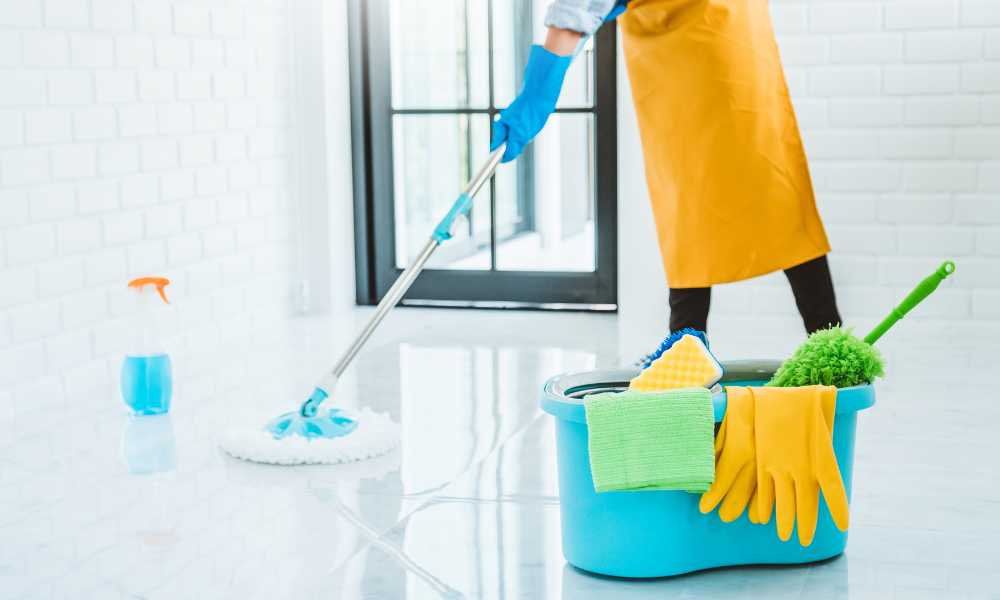What does unclogging drains mean? Unclogging drains is the process of removing blockages that prevent water from flowing freely through pipes. Blockages in drains can happen for a variety of reasons, including hair, soap residue, food particles, and even mineral buildup. When left untreated, these blockages can lead to slow drainage or even complete clogs.
To unclog a drain, there are several methods you can try. One common method is using a plunger to create suction and force the blockage out of the way. Another option is using a drain snake or auger to physically remove the obstruction from the pipe. Sometimes, chemical drain cleaners can also be used to dissolve stubborn blockages, but these should be used with caution as they can be harmful if not handled properly. Overall, unclogging drains is an essential part of maintaining your plumbing system and preventing costly repairs down the line cleaning.
Hair, grease, soap scum, etc.
What does unclogging drains mean? Unclogging drains is the process of removing blockages that prevent water from flowing freely through pipes. Blockages in drains can happen for a variety of reasons, including hair, soap residue, food particles, and even mineral buildup. When left untreated, these blockages can lead to slow drainage or even complete clogs.
To unclog a drain, there are several methods you can try. One common method is using a plunger to create suction and force the blockage out of the way. Another option is using a drain snake or auger to physically remove the obstruction from the pipe. Sometimes, chemical drain cleaners can also be used to dissolve stubborn blockages, but these should be used with caution as they can be harmful if not handled properly. Overall, unclogging drains is an essential part of maintaining your plumbing system and preventing costly repairs down the line.
Signs of a clogged drain:
When your sink or shower drain is slow to empty, it’s a sign that you might have a clogged drain. A clogged drain means that there is an obstruction in the pipe that prevents water from flowing freely. The obstruction could be anything from hair and soap scum to food particles and grease.
One of the first signs of a clogged drain is water backing up in your sink or shower. This can be frustrating and make daily activities such as washing dishes and taking a shower difficult. You may also notice unpleasant odors coming from your drains, which is another indication of a clog. If left unaddressed, a clogged drain can lead to more serious issues such as flooding or even damage to your pipes. To unclog a drain, you’ll need to remove the obstruction causing the blockage.
Slow draining, gurgling sounds, odors.
Have you ever experienced slow draining or gurgling sounds in your sink or shower? Perhaps you have noticed unpleasant odors emanating from your drains. These are all signs that your drains may be clogged and in need of unclogging. This article will explore what unclogging drains means, why it’s important, and how to go about doing it.
Unclogging drains refers to the process of removing any debris or buildup that is causing the pipes to become blocked. Blockages can occur due to a variety of reasons, such as hair buildup, soap scum, food particles, and mineral deposits from hard water. When left untreated, these blockages can result in slow draining water which can lead to backups and overflows. It’s important to address clogged drains immediately because they can cause serious damage if ignored for too long.
Methods for unclogging drains:
Unclogging drains refers to the process of removing any blockages that may be preventing water from flowing freely through your pipes. There are several methods for unclogging drains, ranging from simple home remedies to more complex techniques that require professional assistance.
One common method is using a plunger, which creates a vacuum to push and pull water through the pipe until the blockage is dislodged. Another popular home remedy is using baking soda and vinegar, which creates a chemical reaction that can dissolve some clogs. If these methods don’t work, you can try using a drain snake or auger to physically remove the blockage. For more severe blockages, such as tree roots or collapsed pipes, it’s best to call in a professional plumber who can use specialized equipment like hydro-jetting or camera inspections.
Plunging, snaking, chemical cleaners.
When a drain is clogged, it means that water and other substances are not able to flow freely through it. This can be caused by a variety of factors such as hair buildup, food particles, grease accumulation, or foreign objects. Unclogging drains refers to the process of removing these blockages so that water can flow smoothly through the pipes without any obstruction.
There are several methods for unclogging drains including plunging, snaking, and using chemical cleaners. Plunging is one of the most common ways to unclog a drain. It involves using a plunger to create pressure in the pipe which dislodges any blockages. Snaking involves using a flexible cable with attached blades or hooks that are inserted into the drainpipe to remove any obstructions. Chemical cleaners contain strong chemicals that dissolve or break down anything blocking the drain when poured directly into it.
Prevention tips:
Unclogging drains is a common household chore that can be both frustrating and time-consuming. It involves removing any blockages or buildup that may prevent water from flowing freely through your plumbing system. There are several types of tools and techniques available for unclogging drains, including plungers, drain snakes, and chemical cleaners.
However, prevention is always better than cure when it comes to maintaining clear pipes and avoiding clogs. One simple way to prevent clogs in your drains is by being mindful of what you put down them. Avoid flushing anything other than human waste and toilet paper down the toilet, as this can cause blockages in your sewer line over time. Similarly, avoid pouring cooking grease or oil down the drain as it can solidify and create stubborn clogs. Another prevention tip is to install strainers in all your sinks and shower drains.
Regular maintenance and avoiding certain items.
When it comes to unclogging drains, the key is regular maintenance and avoiding certain items. Regular maintenance involves cleaning your drains on a regular basis to prevent buildup of hair, soap scum, grease and other debris that can cause blockages. This can be done by pouring hot water down the drain once a week or using a mixture of vinegar and baking soda.
Avoiding certain items such as cooking oil, coffee grounds, eggshells, potato peels and non-degradable materials like paper towels, wipes and sanitary pads is also crucial for preventing clogs in your drains. These items should always be disposed of in the trash or recycling bin instead of being flushed down the toilet or poured down the sink. A clogged drain not only causes inconvenience but can also lead to costly repairs if left unattended for long periods. read more clean your pots
Common mistakes to avoid:
When it comes to unclogging drains, many homeowners tend to make common mistakes that can worsen the problem. Unclogging drains refers to the process of removing blockages or debris from your plumbing system to restore proper water flow. However, if not done correctly, this can lead to costly repairs and even health hazards.
One common mistake is using chemical drain cleaners that promise quick results but are harsh on the pipes and can cause damage over time. Another mistake is neglecting regular maintenance, such as cleaning hair traps and flushing hot water down the drain regularly. Additionally, some people may try DIY methods such as using a coat hanger or wire to remove blockages which can result in further damage or pushing the blockage deeper into the pipe.




